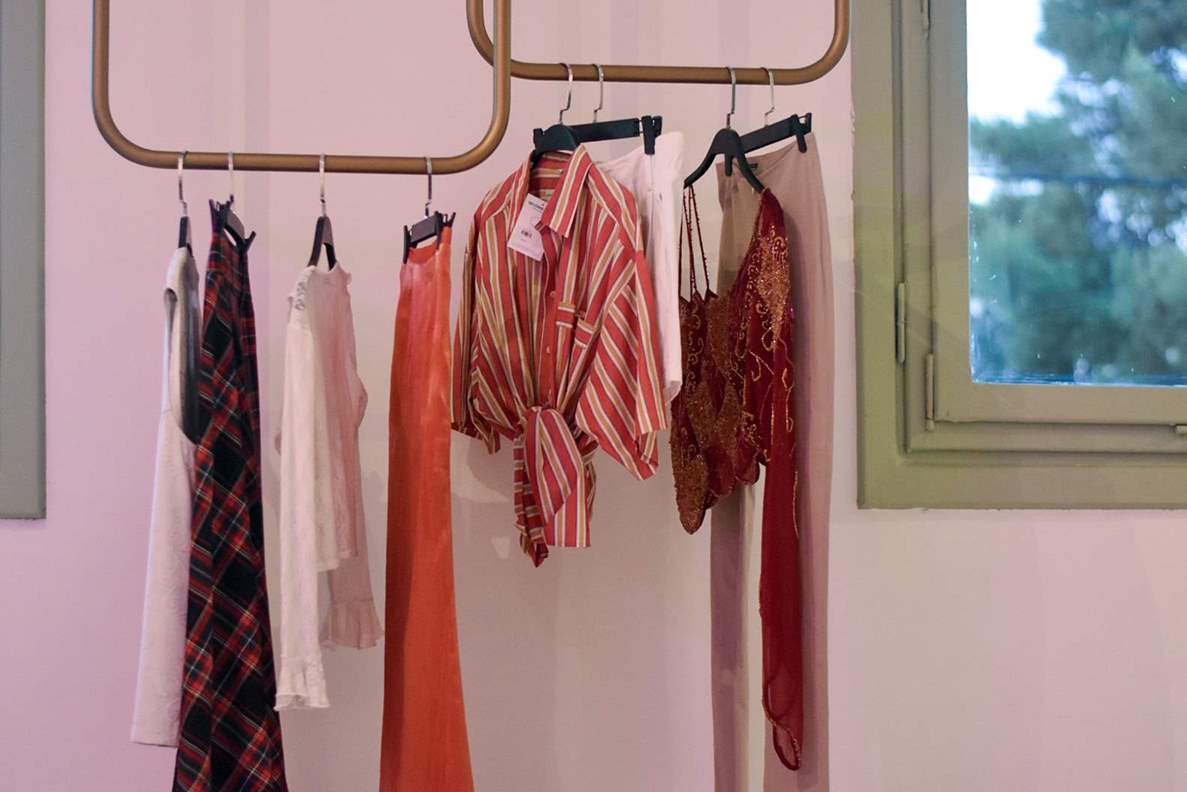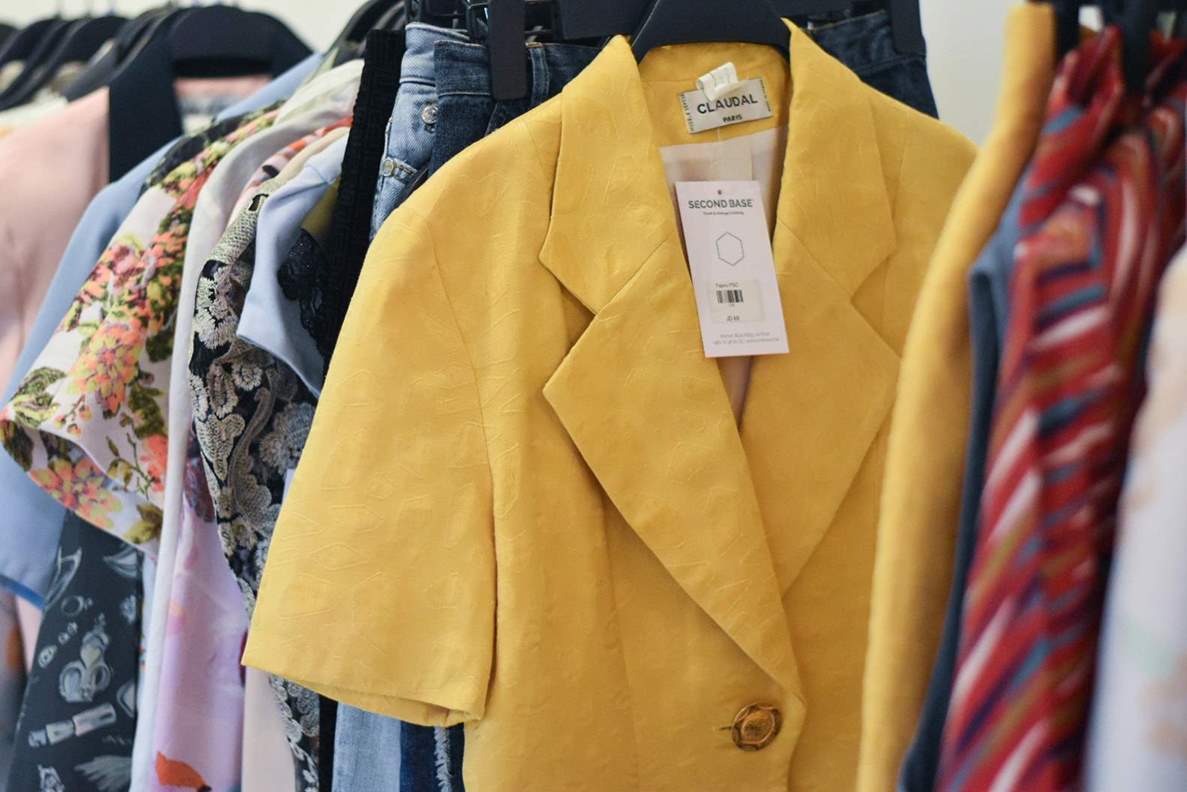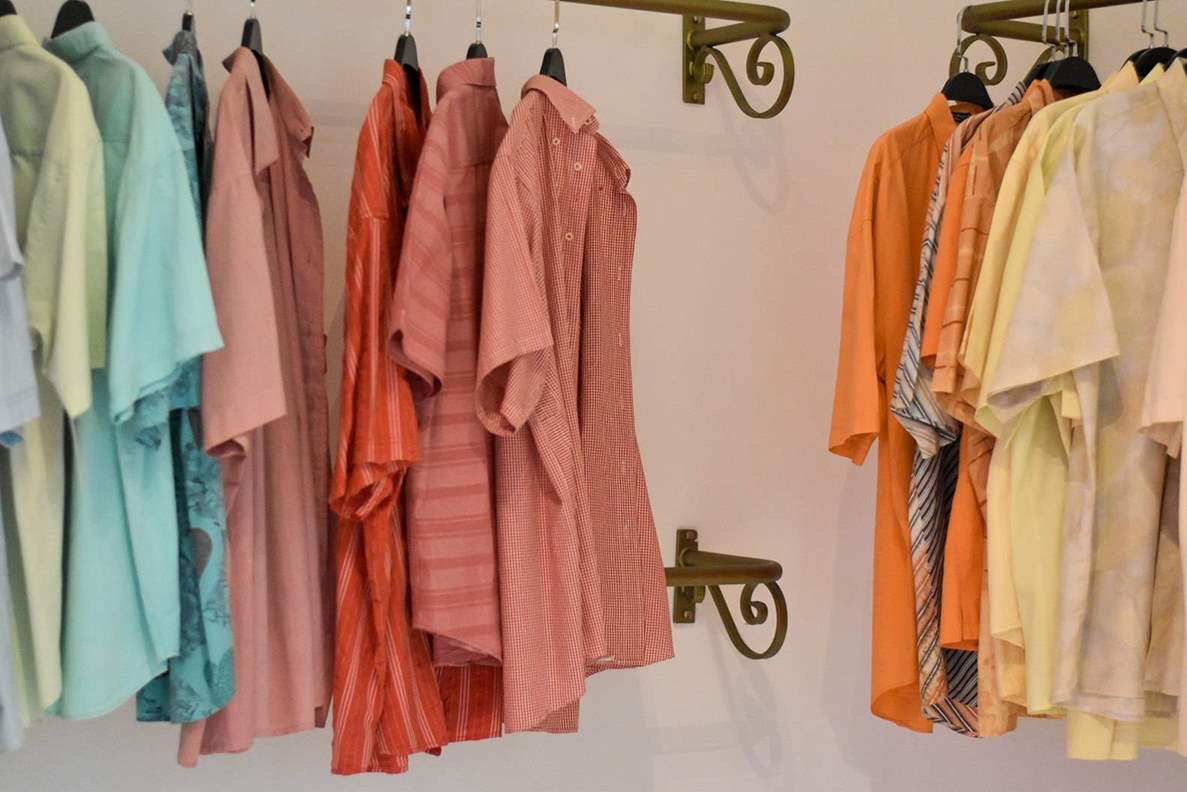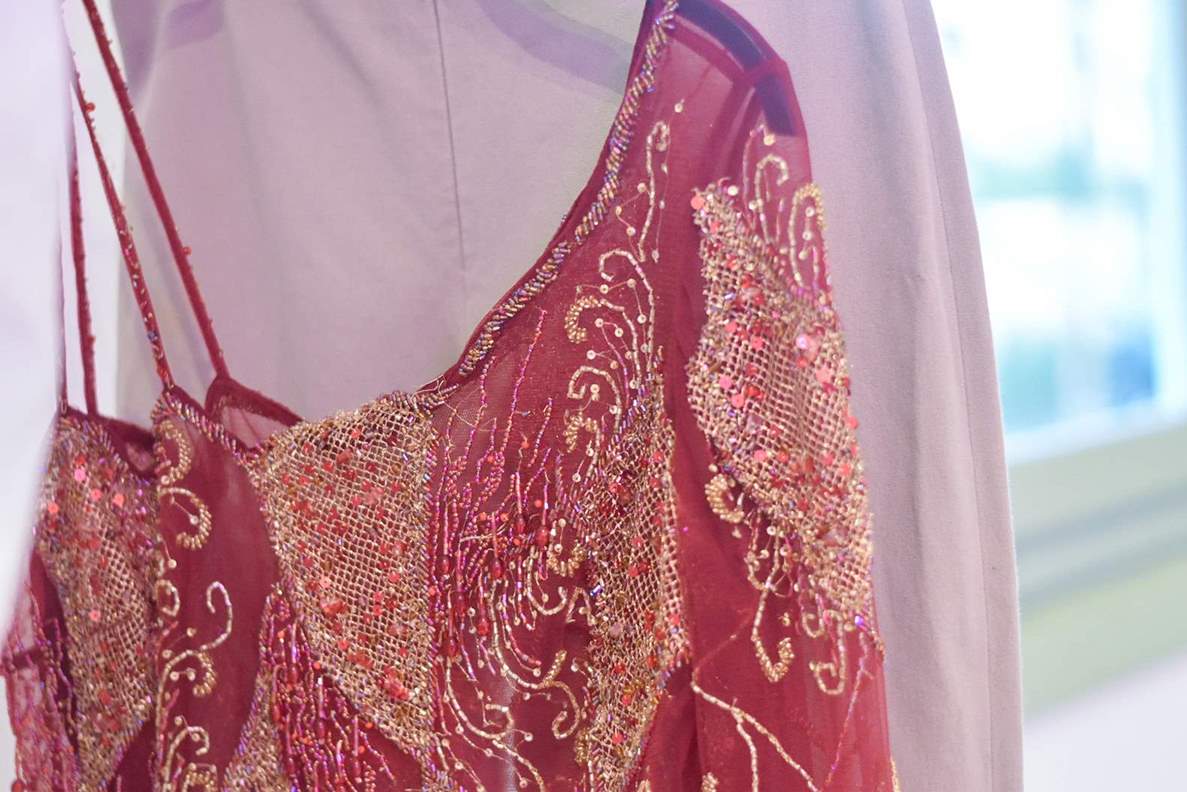AMMAN — For many visitors who walk into Second
Base, a newly opened boutique in
Jabal Luweibdeh located above Xian Asian
Cuisine, the store looks like any of a number of trendy clothing stores across
west Amman. There are sparkly sequined skirts, silky patterned scarves, and an
assortment of dresses, all hanging beneath a fluorescent pink sign reading
“Love again.”
اضافة اعلان
 Second Base, a new boutique in
Luweibdeh, offers stylish vintage clothing. All of the proceeds from the store
are fueled into a social enterprise that provides a “dignified shopping
experience” for marginalized communities. (Zoe Sottile/Jordan News)
Second Base, a new boutique in
Luweibdeh, offers stylish vintage clothing. All of the proceeds from the store
are fueled into a social enterprise that provides a “dignified shopping
experience” for marginalized communities. (Zoe Sottile/Jordan News)
But the brand-new shop has a secret: every
item is second hand, many of them scoured from donation bins in Beirut. All of
the shop’s proceeds flow into
FabricAid, a social enterprise that collects,
sorts, and distributes clothing to disadvantaged communities at a fraction of
the price they would normally sell for. Their goal is to offer a dignified
shopping experience to marginalized communities all while reducing fabric
waste.
“In
the Arab world, second hand (shopping) is not a very established culture,” said Sally Khadra, Second Base’s brand manager. “We need to establish it. How can you
establish it? When you display it in a good way, when you create a very nice
shop, you are introducing second-hand in a very decent way.”
Originally founded in Lebanon in 2017,
FabricAid works in a variety of modalities to make sure no fabric goes to waste.
At its Souk Al-Khlanj branches — last month, they opened their first such shop
in Amman in Jabal Al-Natheef — they sell cleaned, ironed, and high-quality
second hand clothes at “micro-prices.” Their shops are neat and organized, with
dressing rooms and an experienced sales vendor to “offer a dignified shopping
experience.”
 The
Luweibdeh store is FabricAid’s first expansion outside of Lebanon. (Zoe
Sottile/Jordan News)
The
Luweibdeh store is FabricAid’s first expansion outside of Lebanon. (Zoe
Sottile/Jordan News)
However, 6 percent of the donations FabricAid
receives are deemed too flamboyant or non-traditional. These items are directed
to their Second Base stores, such as in their Luweibdeh location, which is the
first Second Base outpost outside of Lebanon.
These shops feature unique, colorful, and
vintage styles and more revealing items which might not sell at Souk Al-Khlanj.
They also sell for slightly higher prices — the average item at Second Base in
Weibdeh runs between 12 and JD15 — which helps fund FabricAid’s operations.
“Everything we get from here is to sustain
FabricAid and Souq Al-Khlanj,” said Sally Khadra, Second Base’s brand manager,
in an interview with
Jordan News. “Our main goal is Souq Al-Khlanj, this is
just a way of sustaining ourselves.”
 Colorful secondhand shirts in the men’s section at
Second Base. (Zoe Sottile/Jordan News)
Colorful secondhand shirts in the men’s section at
Second Base. (Zoe Sottile/Jordan News)
At the front of the shop sits a tailor, Ahmad,
who modifies items to fit customers — free of cost. Khadra added that his work
makes shoppers feel more comfortable knowing that he can fix minor
imperfections — like a missing button — or tailor a blazer to fit.
If you’re looking to offload your closet,
Second Base also buys good-condition vintage items, “depending on the style”,
according to Khadra. She explained that the items should be unique. Plain
items, even if they come from an expensive brand, are directed towards Souq
Al-Khlanj.
 The store hopes to promote vintage shopping in Jordan
and the Middle East.
The store hopes to promote vintage shopping in Jordan
and the Middle East.
Khadra said that the reaction to the store’s
opening in Amman has been overwhelmingly positive. “People hardly notice it’s
second hand,” she said. “When we tell them it’s second hand, they’re shocked.”
“The feedback is amazing.”
She explained that she’s hoping to introduce a
culture that embraces and elevates second hand shopping in Amman.
“It’s
the exclusivity,” that draws in customers to the store, according to Khadra.
“They’re taking a unique item that someone else doesn’t have. In the
fast-fashion world, with Zara, Mango, Pull&Bear, all people are dressed the
same way. So they come here to have this unique item.”
Read more
Trending



